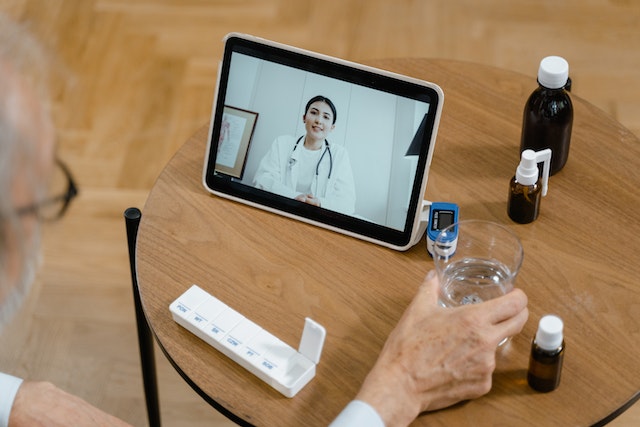Introduction: The healthcare landscape is rapidly evolving, and one notable transformation is the rise of virtual medical consultations. As technology continues to advance, virtual consultations are becoming increasingly popular and are poised to shape the future of healthcare. In this article, we will explore the reasons why virtual medical consultations hold immense promise and how they are revolutionizing the way healthcare is delivered.
- Improved Accessibility: Virtual medical consultations break down geographical barriers and increase access to healthcare, particularly for individuals in remote areas or those with limited mobility. Through virtual platforms, patients can connect with healthcare professionals regardless of their physical location, making healthcare more accessible and convenient for a wider population.
- Convenience and Time Efficiency: Virtual consultations offer unparalleled convenience to patients. Instead of traveling to a healthcare facility and waiting for appointments, patients can schedule virtual visits from the comfort of their own homes. This eliminates the need for travel time, reduces waiting room congestion, and allows patients to receive timely care without disrupting their daily routines. Similarly, healthcare providers can efficiently manage their schedules, optimizing their time and increasing patient volume.
- Continuity of Care: Virtual consultations facilitate continuity of care, allowing patients to connect with their healthcare providers on an ongoing basis. Follow-up appointments, prescription refills, and routine check-ins can be seamlessly conducted through virtual platforms. This continuity ensures that patients receive consistent care, monitoring, and guidance, leading to better health outcomes and improved patient satisfaction.
- Enhanced Specialist Access: Virtual consultations enable patients to easily access specialists who may be located in distant cities or even different countries. By eliminating travel constraints, patients can seek expert opinions and specialized care without the need for long-distance travel. This expanded access to specialists can significantly improve patient outcomes and enable collaborative healthcare approaches that transcend geographical limitations.
- Cost Savings: Virtual medical consultations can potentially reduce healthcare costs for both patients and providers. Patients save on transportation expenses, parking fees, and potential accommodation costs associated with in-person appointments. Additionally, virtual consultations can be more cost-effective for healthcare providers, reducing overhead expenses associated with physical facilities and streamlining administrative processes.
- Telemedicine Technology Advancements: Rapid advancements in telemedicine technology are driving the adoption of virtual medical consultations. High-definition video conferencing, secure messaging platforms, and digital health monitoring devices are revolutionizing the way healthcare is delivered remotely. With the integration of artificial intelligence (AI), machine learning, and remote monitoring technologies, virtual consultations can offer enhanced diagnostic capabilities and personalized treatment recommendations.
- Improved Patient Engagement and Empowerment: Virtual consultations empower patients to actively participate in their healthcare journey. Through virtual platforms, patients can access their medical records, review test results, and engage in shared decision-making with their healthcare providers. This increased engagement leads to better patient understanding, adherence to treatment plans, and overall satisfaction with their healthcare experience.
- Pandemic Preparedness: The global COVID-19 pandemic has highlighted the importance of virtual medical consultations in ensuring uninterrupted healthcare delivery during crises. Virtual consultations have been instrumental in minimizing exposure risks, preserving healthcare resources, and maintaining the continuity of care during lockdowns and social distancing measures. The pandemic has accelerated the adoption of virtual consultations and reinforced their significance in future healthcare strategies.
Conclusion: Virtual medical consultations offer a transformative approach to healthcare delivery, bringing numerous benefits to both patients and healthcare providers. Improved accessibility, convenience, continuity of care, enhanced specialist access, cost savings, telemedicine technology advancements, patient engagement, and pandemic preparedness are all compelling reasons why virtual consultations are the future of healthcare. As technology continues to evolve, virtual consultations will play an increasingly integral role in delivering efficient, accessible, and patient-centered care.












